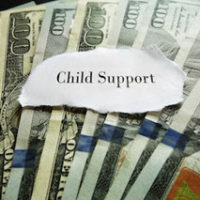Can the State Harass Me Over Child Support After a Chapter 13 Bankruptcy?

When you file for bankruptcy, the automatic stay goes into effect. This is a stop on all debt collection attempts from your creditors. It is meant to give you some “breathing room” as you work through the bankruptcy process.
There are two notable exceptions to this stop: collection attempts for child support and collection attempts for alimony. If you are delinquent in your payment of either of these orders, the state is authorized to take actions to collect the money you owe. These actions can include wage garnishment and seizure of your tax return or lottery winnings.
It is Not Harassment; It is the State Ensuring your Children are Supported
The reason why the automatic stay does not halt child support and alimony payments is that these payments support the people who depended on you financially during your marriage: your spouse and children. A credit lender or utility service provider can wait to receive their repayment, whereas your former spouse or children could go hungry or become delinquent on their own rent or mortgage payments if you do not make your payments. Instead of thinking of the state’s child support collection attempts as harassment, think of them as the state protecting your children.
That said, it can be very difficult to make your required child support payments when you are facing financial hardship.
Using Bankruptcy to Catch Up on Missed Child Support Payments
When you file for Chapter 13 bankruptcy, you submit a repayment plan to the court. This plan outlines your budget and the actions you will take to repay your debt over the next three to five years. If you have outstanding child support debt, you must include it in this plan and pay it in full through your bankruptcy.
By using Chapter 13 bankruptcy to organize your debt, you can prioritize your child support debt to put a lot of effort into repaying it. Certain nonpriority unsecured debts, like medical debt and personal loans, can be discharged at the end of your Chapter 13 repayment period. Eliminating these debts through discharge is another way Chapter 13 can help you put more money toward repaying your child support.
You can also discuss modifying your child support order with your lawyer. By modifying your child support order, you can reduce the amount of money you owe through legal means, which can keep you from falling behind on your payments. To modify your order, you must show a substantial change in circumstances, which may include a reduction of your income. Showing that you have filed for bankruptcy may be considered a factor.
Work with an Experienced Orlando Child Support Lawyer
If you are considering filing for bankruptcy and you have outstanding child support debt, work with a lawyer who practices family law as well as bankruptcy law in Orlando to ensure that you have a full understanding of both legal areas and their intersections. Contact our team at Goodblatt • Leo today to schedule your initial consultation with us.
Resource:
law.cornell.edu/uscode/text/11/362
